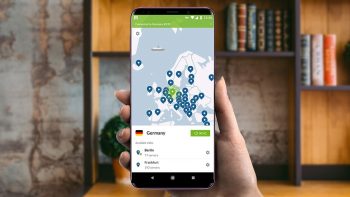
How Do VPNs Work? A Guide to Virtual Private Networks
VPNs are a great way to protect your privacy and security online. But what is a VPN? And how does it work? That’s where we come in. We’ll walk you through the basics of VPN technology, so you can make an informed decision about which one is best for you.
It is essential to protect yourself online, now more than ever. Cybercrime has skyrocketed by 600 percent globally during the COVID-19 pandemic, and you could be vulnerable to attack any device that connects to the internet.
More and more people in Canada are getting a VPN to secure themselves online, while consumers worldwide are also realizing the value that comes with this extra layer of security.
A virtual private network (VPN) creates a secure connection between two devices, such as computers or smartphones. When using a VPN, all data that travels between these two points is encrypted and secured from prying eyes on either side of the connection.
This means that when connecting to public Wi-Fi networks like those at coffee shops or airports, hackers won’t be able to steal your personal information because they’ll only see encrypted data instead of unencrypted traffic like passwords and credit card numbers.
It also means that if someone tries to track your location by following your IP address – even if they’re successful – they’ll see another IP address belonging to the VPN service rather than yours.
How a VPN Protects You Against Cybercrime
A virtual private network is an encrypted connection between two computers over the internet that allows data to be securely transmitted as though they were directly connected over a local area network (LAN).
This means that all of your data – from emails to instant messages – will be sent through one secure channel rather than being broadcast in plain text across the internet. It also means that nobody can intercept or read any information exchanged between these two points on the web without knowing the encryption key used by both parties. That includes hackers, ISPs, governments and even your ISP.
VPNs are great because they allow you to surf anonymously, bypass censorship restrictions and keep your personal information safe from prying eyes while browsing online. They also ensure that no one can track where you’ve been or what sites you’ve visited.
Other Benefits a VPN Provides
Have you ever wanted to access streaming services that are geo-restricted in Canada (or another country)? A VPN is an easy way for anyone living outside of their home country to get around geo-restrictions on sites like Netflix, Amazon Prime, Hulu, BBC, etc., as well as unlocking other content not available in their region.
You get added privacy and anonymity because a quality VPN will provide privacy by encrypting your internet connection so that no one can see what you’re doing online. In addition, with a VPN, you can change your virtual location to any of our servers worldwide and enjoy unrestricted internet access.
With our VPN service, nobody will be able to see where you are browsing from. Likewise, your ISP won’t know what sites you visit or what content you download because all of this information is encrypted by our servers before being sent back to your device.
How to Find The Best VPN For You
There are many different types of VPNs out there – some are free but don’t offer much protection; others cost money but provide better security features. Some will work on mobile devices like iPhones and iPads; others only work with desktop computers or laptops. The best way to find the right one for you is to do research before making a purchase decision.
It is recommended that you choose a VPN with military-grade encryption that will protect your online activity from hackers who are trying to steal your personal information. Check to see if your VPN logs your data as well, you don’t want to surrender your sensitive information to a VPN company that may not be reputable.
With the right VPN, you will enjoy security, anonymity and peace of mind on the internet – no matter how you browse.